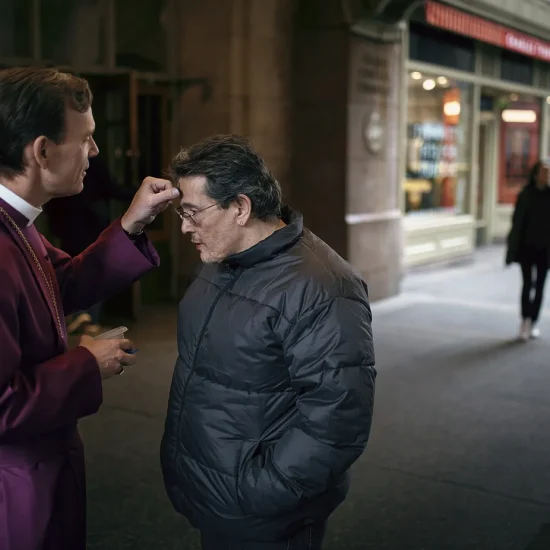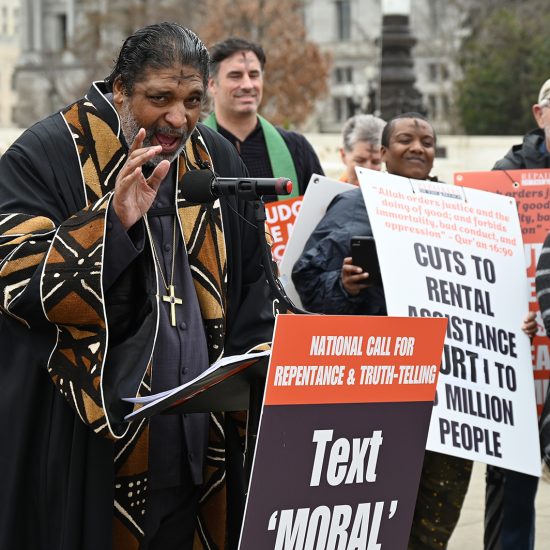
I recently watched the “The Upside,” a movie starring Bryan Cranston as Phillip, a wealthy entrepreneur confined to a wheelchair due to a hang-gliding accident. He hires Dell (played by Kevin Hart) as his personal caregiver. Since Dell is black, unemployed and a parolee, we watch their two worlds clash. Amidst some very humorous and awkward moments, we observe how each man becomes invisible to a culture that “otherizes” them based on paraplegia (Phillip) and race (Dell).

Doyle Sager
In one scene, Dell is accompanying his boss Phillip through the parking garage when they encounter Phillip’s rather snooty neighbor, Carter. How interesting that Carter has no trouble “seeing” Phillip, his financial and social equal, but seems to look right through Dell, the dark-skinned assistant standing right there. All Carter’s questions and comments about “the help” are directed to Phillip. All the while, Dell pointedly challenges Carter, “I’m standing right here. I can hear you. Talk to me.”
Later in the movie, the tables are turned when the two travel from the affluent confines of Phillip’s world to Dell’s gritty, working-class neighborhood. At a busy hot dog stand, the man behind the counter takes Dell’s order and then makes the mistake which many of us have made. He assumes that because Phillip is in a wheelchair, he must also be deaf and mute. He asks Dell what his friend wants to eat, as if Phillip, sitting right in front of him, is a hologram and not a person.
How many of us have taken an older adult to the doctor, only to have the medical staff talk to us rather than to the patient? Invisible.
One of the Bible’s clear messages is that God is not only an eternal being but also a moral one. That morality is on full display early in the Exodus story when the Israelites, under the cruel weight of slavery, cry out to God. Scripture states that in response, “God looked upon the Israelites, and God took notice of them” (Exodus 2:25, emphasis added). Jesus of Nazareth seems to have his Father’s eyes, because Matthew records that when Jesus “saw the crowds, he had compassion for them…” (9:36 NRSV, emphasis added).
Every day, people enter and exit my life. But do I see them? The question haunts me. How do I break the habit of rendering others invisible? I offer these words of caution to myself and to you:
1. Beware of familiarity. Family member, coworker, friend or neighbor — did I fail to see someone today, simply because they are always nearby? Because I always see them, I never see them.
2. Beware of easy rationalizations, which assist us in un-seeing others. Sometimes it is just not convenient to care. We want to erase what we see so we don’t have to deal with it. Never fear. Convenient ideologies exist to aid us.
In the Exodus account, Pharaoh treats the Hebrew slaves as production units instead of human beings by simply declaring they are lazy and deserve his harsh treatment (Exodus 5:8). Generalizations and assumptions regarding race, class, sexuality, religion, age and disability all provide an escape from the hard work of seeing.
3. Beware of distractions. Our world seems aflame with crises, scandals and cruel injustice. Compassion fatigue sets in and we find it impossible to remain incensed about the same situation for longer than forty-eight hours. We fail to “see” human suffering because we’re always moving on to the latest nastiness.
Recently, on a page in our local newspaper, there was a story about congressional hearings and another about the merits of various federal budget priorities. These pieces almost crowded out one about the thousands of children who are still being detained at our U.S. borders. Many of them have been there a long time. But we stopped seeing them around the time of last fall’s elections … and then the government shutdown … and then the Alabama tornadoes …. and then the Ethiopian airplane crash and then … Distraction.
4. Beware of snobbish benevolence. Read carefully Jesus’s desert temptation (Matthew 4:1-11; Luke 4:1-13). In each test, Jesus was tempted to do something wonderful but to do it without ever seeing people.
Mission projects often fail because we import our plans and agenda, never really seeing others as partners and advisors. Without realizing it, we turn human beings into commodities, objects of our good will. In the work of racial reconciliation, minorities often despair when well-meaning whites arrive on the scene with prepackaged answers instead of humbly listening and learning. We see the noble cause. But do we see people?
Lent is the season for paying attention. Compassion is the work of seeing, of making invisible people visible.






